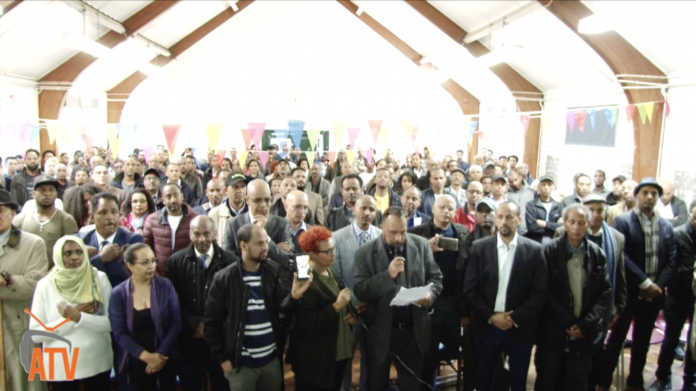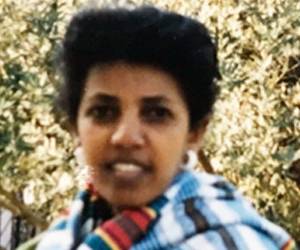Background
In one of his marathon interviews broadcasts on 18 September 2003, Isaias Afwerki, who rules Eritrea as his personal property, said: “The government is trusted by its people. Government institutions have been set up for the people.”[1] Contrary to his assertion, not only has his post-independence government failed to create new institutions, but it has also systematically dismantled the formal and the informal institutions that pre-existed it.
The raison d’être for this project has been to facilitate the development and consolidation of a highly personalised system of presidential rule by paving the way for an arbitrary and unaccountable way of making decisions and exercising power with impunity. Power radiates from President Isaias without control or accountability of any kind. It is rule by whim and officials are appointed and removed at his sole discretion. Even the sole legal party has held no conference in its entire existence. The People’s Front for Democracy and Justice (PFDJ) was founded in 1994 out of the Eritrean People’s Liberation Front [EPLF], that Isaias effectively led since the 1970’s.
The PFDJ government has had policies designed and enforced to ensure the unfettered political, social, cultural and economic control of the President. These include: (a) the prohibition of political and civil society associations and private mass media; (b) indefinite and arbitrary incarceration of journalists and other nonconformists of the regime; (c) stifling of the private sector and consequently the destruction of the nascent middle class; (d) domination of the economy by the PFDJ’s feebly-run firms; (d) the nationalisation of land; (e) the mobilisation of citizens aged between 18 and 50 under the national service and the Warsai Yikealo Development Campaign (WYDC) introduced in May 2002 thereby eroding the diverse livelihood systems of the citizenry; (f) the expulsion and prohibition of international and domestic NGOs, respectively; (g) militarisation of the society; (h) the absence of a national budget and national accounts; (i) the dismantling of the only university in the country; (j) the relocation of final year secondary school students to the Military Camp of Sawa; (k) the suppression of religious freedom—the Jehovah’s Witnesses, Pentecostal Christians, Bahai and the Medhanie Alem Orthodox Church and radical Islam; and (l) the freezing of officials and civil servants who questioned the president’s personal rule.
These have ensured that both the country and its people are in the absolute grip of a callous and unaccountable personal ruler. Life under Isaias Afwerki has become unbearable. As a result, tens of thousands of the Eritrean youth have been voting with their feet and fleeing in search of safety and livelihood. Many of those who fled have fallen into the hands of ruthless traffickers, while thousands have ended their journey languishing in detention centres in countries such as Libya where torture, rape and enslavement are rampant. Others are exploited by ravenous and corrupt state officials in transit countries. Thousands have also been perishing in the Sahara Desert or drowned in the Mediterranean.
The opposition renewed
For many years the opposition in exile has been dominated by the two parties that participated in the fight for Eritrea’s liberation from Ethiopian rule: the EPLF and the Eritrean Liberation Front, from which the EPLF sprang. But in the last few years, new movements have emerged and are beginning to make their presence felt.
Yiakl (Enough is Enough) Movement
The detrimental and the tyrannical policies pursued by the incumbents have emptied the country of its single most important resource – its people – bringing the economy to its knees. The main protagonists of the Yiakl Movement are the Warsai generation (the young people who are the ‘inheritors of the revolution’ – the independence their forefathers fought for) whose hopes, and aspirations have been stifled. They have been particularly oppressed by the open-ended system of ‘national service’ or conscription, which has over time degenerated into modern form of slavery. A good proportion of the Warsai generation who fled from Eritrea have united under the banner –“Enough is Enough.”
The organising principle of the emergent popular movement is to bring about democratic change in Eritrea and over time, and effect long-term peace and stability in the Horn of Africa region. The movement first came into being in 2019. As they gathered momentum it became clear that there was a need for a united, global leadership to bring together the membership which was scattered across the globe. A decision was reached in 2020 to form a Global Yiakl Movement (GYM) comprising of the previously independent different Yiakl movements in the USA, UK, Germany, Sweden, Denmark, Italy, France, South Africa, Switzerland, Canada and Australia.
According to a statement released in August 2021 at the founding global conference, it was declared that the initiative of establishing the GYM shines bright rays of hope and “…reaffirm[s] our unity and solidarity and bring together Eritreans to the GYM platform to provide a feasible and expert solution to the threats and dangers our people and country are facing.”
In the light of the bleak reality permeating the Eritrean social and political landscape, the birth of a world-wide youth movement, determined to fight for democratic change and transformation, is likely to infuse a sense of optimism among many Eritreans who have hitherto been either passive, or supporters of the tyrants in Asmara, for ostensibly lack of a “credible alternative.”
Post-independence Eritrea has been a graveyard of a myriad of social and political movements that appeared, only to disappear, before the ink announcing their emergence had dried. Therefore, the leaders of the GYM and their supporters have a colossal responsibility to show that they are different. They have to prove that they have staying-power and can truly contribute to the process of change by bringing to an end the brutal dictatorship that has brought our beloved country, Eritrea, to its knees.
Our people have suffered enough. It is high time that we rise in unison to fight to bring to an end the: dictatorship, indefinite incarceration without Habeas corpus and trial, disappearances, indefinite national service and militarisation, interference in other countries’ domestic affairs and domination of the national economy by the firms of the PFDJ.
Gaim Kibreab, London



